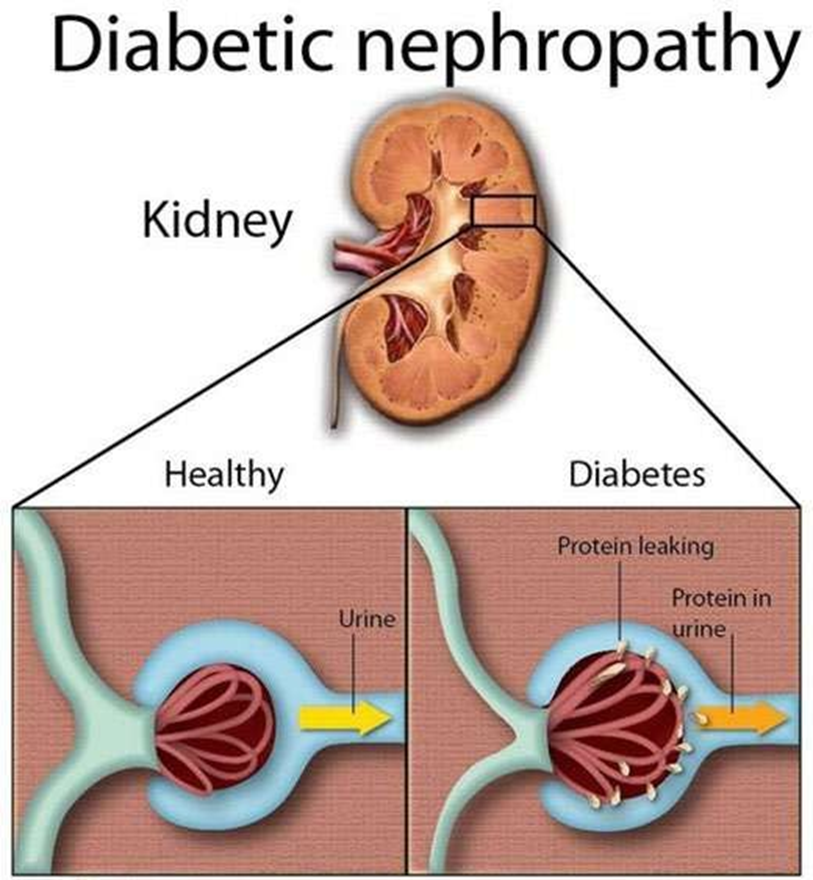A nurse is providing dietary teaching to a client who has nephropathy secondary to diabetes mellitus and plans to
make dietary adjustments. Which of the following instructions should the nurse include?
Eat at least 45 g of fiber per day.
Consume less than 0.8 g/kg of body weight of protein per day.
Eat no more than 300 mg of cholesterol per day.
Consume less than 45% of total calories from carbohydrates per day.
The Correct Answer is B
Choice A reason: While fiber is important in a diet, recommending at least 45 g per day does not specifically address the needs of a patient with diabetic nephropathy.
Choice B reason: Consuming less than 0.8 g/kg of body weight of protein per day is recommended for patients with diabetic nephropathy to reduce the workload on the kidneys.

Choice C reason: Limiting cholesterol intake to 300 mg per day is a general recommendation for heart health but is not specific to diabetic nephropathy dietary management.
Choice D reason: The recommendation to consume less than 45% of total calories from carbohydrates is not specific to diabetic nephropathy, and carbohydrate needs can vary based on individual energy requirements.
Nursing Test Bank
Naxlex Comprehensive Predictor Exams
Related Questions
Correct Answer is E
Explanation
Choice A reason: Warming the dialysate in a microwave oven is not recommended because uneven heating could occur, leading to hot spots that can burn the peritoneal cavity. The dialysate should be warmed to body temperature using a warming device designed for this purpose.
Choice B reason: While some discomfort may be experienced during the first few exchanges, significant pain is not expected. If pain occurs, it should be reported to a healthcare provider, as it may indicate an underlying problem.
Choice C reason: Redness at the catheter exit site is not a normal expectation and could indicate an infection. The site should be kept clean and dry, and any signs of redness, swelling, or discharge should be reported to a healthcare provider immediately.
Choice D reason: There is no need to avoid foods high in fiber unless otherwise advised by a healthcare provider. In fact, a diet high in fiber can be beneficial for bowel regularity, which is important for patients on peritoneal dialysis.
Correct Answer is C
Explanation
Choice A reason: During the oliguric phase of acute kidney injury, BUN and creatinine levels typically increase, not decrease, due to reduced kidney function.
Choice B reason: Renal function is not reestablished during the oliguric phase; this phase is characterized by decreased function.
Choice C reason: The oliguric phase is defined by significantly reduced urine output, often less than 400 mL per 24 hours.
Choice D reason: The GFR does not recover during the oliguric phase; it is usually decreased.
Whether you are a student looking to ace your exams or a practicing nurse seeking to enhance your expertise , our nursing education contents will empower you with the confidence and competence to make a difference in the lives of patients and become a respected leader in the healthcare field.
Visit Naxlex, invest in your future and unlock endless possibilities with our unparalleled nursing education contents today
Report Wrong Answer on the Current Question
Do you disagree with the answer? If yes, what is your expected answer? Explain.
Kindly be descriptive with the issue you are facing.
